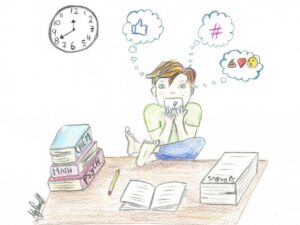Emotional burnout, causes, symptoms, and how to recover from emotional burnout.

Emotional burnout, causes, symptoms, and how to recover from emotional burnout.
What emotional burnout is about?
Emotional burnout is a state of severe physical and mental exhaustion due to prolonged exposure to stress without adequate opportunities for recovery or self-care.
It is characterized by a combination of emotional, mental, and physical fatigue, accompanied by a sense of reduced personal accomplishment and detachment from work or responsibilities.
It often affects individuals who are highly dedicated and passionate about their work or responsibilities but face demanding environments, overwhelming workloads, and limited support systems.
Certainly! Emotional burnout can be caused by;
Failing to prioritize self-care activities, such as getting enough sleep, exercise, and relaxation, can make you more vulnerable to burnout. Neglecting your physical and emotional needs can deplete your resilience and make it harder to cope with stress.
Feeling powerless or lacking control over your work or personal life can contribute to burnout. When you perceive a lack of autonomy or influence in decision-making processes, it can lead to feelings of frustration and helplessness.
Moreover, certain personal characteristics, such as perfectionism, self-criticism, and a strong desire to succeed, can increase the risk of burnout. People who have difficulty setting boundaries, saying no, or delegating tasks may also be more susceptible.
More so, excessive workload, long hours, high-pressure environments, unrealistic expectations, lack of control over one’s work, and a lack of recognition or reward for achievements can contribute to emotional burnout. Additionally, a lack of support from supervisors or colleagues can exacerbate the stress.
Furthermore, when there is a significant disparity between work demands and personal life responsibilities or activities, it can lead to chronic stress and make it challenging to find a healthy balance which can lead to emotional burnout.
Finally, feeling isolated or unsupported can intensify feelings of emotional exhaustion.
It is very important to note that, identifying the causes of burnout can help individuals and organizations implement preventive measures and strategies to promote well-being and reduce the risk of burnout.
Signs of emotional burnout
Physical symptoms such as headaches, stomachaches, muscle tension, and other physical ailments may be present.
Little or no motivation: Feeling a decreased sense of motivation, engagement, and satisfaction in tasks or responsibilities.
Cognitive difficulties: Trouble concentrating, memory problems, and impaired decision-making.
Increased conflicts or withdrawal from social interactions due to irritability, frustration, or a sense of detachment.
Experiencing a decline in performance and efficiency due to mental and physical fatigue.
Feeling drained, depleted, and overwhelmed by emotions.
Sleep disturbances such as insomnia, restless sleep, or constant fatigue, even after adequate rest.
Strategies to help recover from emotional burnout.
The first step is to acknowledge and accept that you are experiencing burnout. Recognizing the signs and understanding that burnout is a valid concern will help you take the necessary steps to recover.
Make self-care a priority. Focus on activities that promote relaxation, stress reduction, and overall well-being. This may include regular exercise, proper nutrition, adequate sleep, engaging in hobbies, practicing mindfulness or meditation, and taking breaks throughout the day.
Also, reach out to friends, family, or colleagues who can provide emotional support and understanding. Consider seeking professional help from therapists or counselors who specialize in stress management and burnout.
It is necessary to assess your workload and identify areas where you can make changes. Consider discussing your concerns with your supervisor or manager, and explore options for reducing excessive work demands or redistributing responsibilities.
You can also incorporate stress management techniques into your daily routine. This may include deep breathing exercises, journaling, practicing relaxation techniques, engaging in activities that bring joy and relaxation, or seeking out activities that promote a sense of fulfillment and well-being.
In addition, learn to set boundaries and say no when necessary. It’s important to establish limits on your workload, commitments, and responsibilities to prevent further burnout. Delegate tasks when possible and communicate your needs effectively.
Allow yourself regular breaks during the day and take advantage of vacation or personal days to recharge and disconnect from work. Use this time to engage in activities that help you relax and rejuvenate.
In some cases, it may be necessary to make more significant changes, such as exploring a different job or career path, adjusting work hours, or reassessing personal commitments. Assess your priorities and make decisions that align with your well-being.
Recovering from emotional burnout takes time and patience.
Building resilience and maintaining a healthy work-life balance will help prevent future reoccurrences of burnout.






